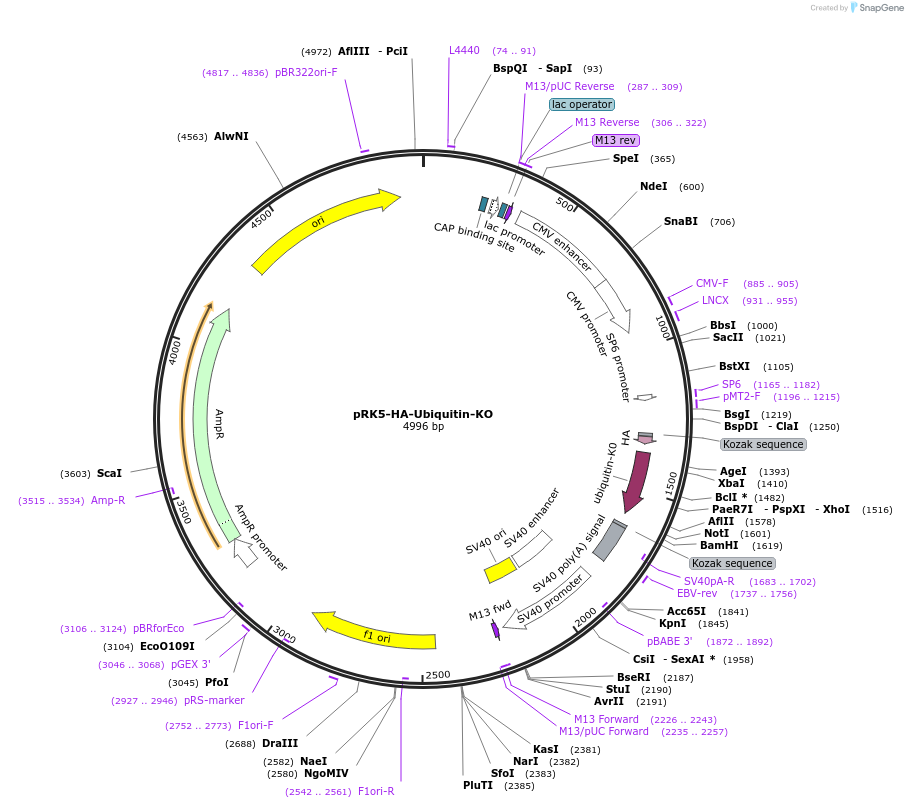-
PurposeMammalian expression of HA tagged ubiquitin carrying zero lysines (K0)
-
Depositing Lab
-
Publication
-
Sequence Information
Ordering
| Item | Catalog # | Description | Quantity | Price (USD) | |
|---|---|---|---|---|---|
| Plasmid | 17603 | Standard format: Plasmid sent in bacteria as agar stab | 1 | $89 | |
Backbone
-
Vector backbonepRK5-HA
- Backbone size w/o insert (bp) 4800
-
Vector typeMammalian Expression
Growth in Bacteria
-
Bacterial Resistance(s)Ampicillin, 100 μg/mL
-
Growth Temperature37°C
-
Growth Strain(s)DH5alpha
-
Copy numberHigh Copy
Gene/Insert
-
Gene/Insert nameUbiquitin C
-
Alt nameUb
-
SpeciesH. sapiens (human)
-
Insert Size (bp)220
-
MutationKO: all lysines mutated to arginines
-
Entrez GeneUBC (a.k.a. HMG20)
-
Tag
/ Fusion Protein
- HA (N terminal on backbone)
Cloning Information
- Cloning method Restriction Enzyme
- 5′ cloning site SalI (not destroyed)
- 3′ cloning site NotI (not destroyed)
- 5′ sequencing primer SP6
- (Common Sequencing Primers)
Resource Information
-
Articles Citing this Plasmid
Terms and Licenses
-
Academic/Nonprofit Terms
-
Industry Terms
- Not Available to Industry
Trademarks:
- Zeocin® is an InvivoGen trademark.
Depositor Comments
The ubiquitin KO sequence in this plasmid contains the following lysine to arginine mutations: K6R, K11R, K27R, K29R, K33R, K48R and K63R.
These plasmids were created by your colleagues. Please acknowledge the Principal Investigator, cite the article in which the plasmids were described, and include Addgene in the Materials and Methods of your future publications.
-
For your Materials & Methods section:
pRK5-HA-Ubiquitin-KO was a gift from Ted Dawson (Addgene plasmid # 17603 ; http://n2t.net/addgene:17603 ; RRID:Addgene_17603) -
For your References section:
Parkin mediates nonclassical, proteasomal-independent ubiquitination of synphilin-1: implications for Lewy body formation. Lim KL, Chew KC, Tan JM, Wang C, Chung KK, Zhang Y, Tanaka Y, Smith W, Engelender S, Ross CA, Dawson VL, Dawson TM. J Neurosci. 2005 Feb 23. 25(8):2002-9. 10.1523/JNEUROSCI.4474-04.2005 PubMed 15728840



